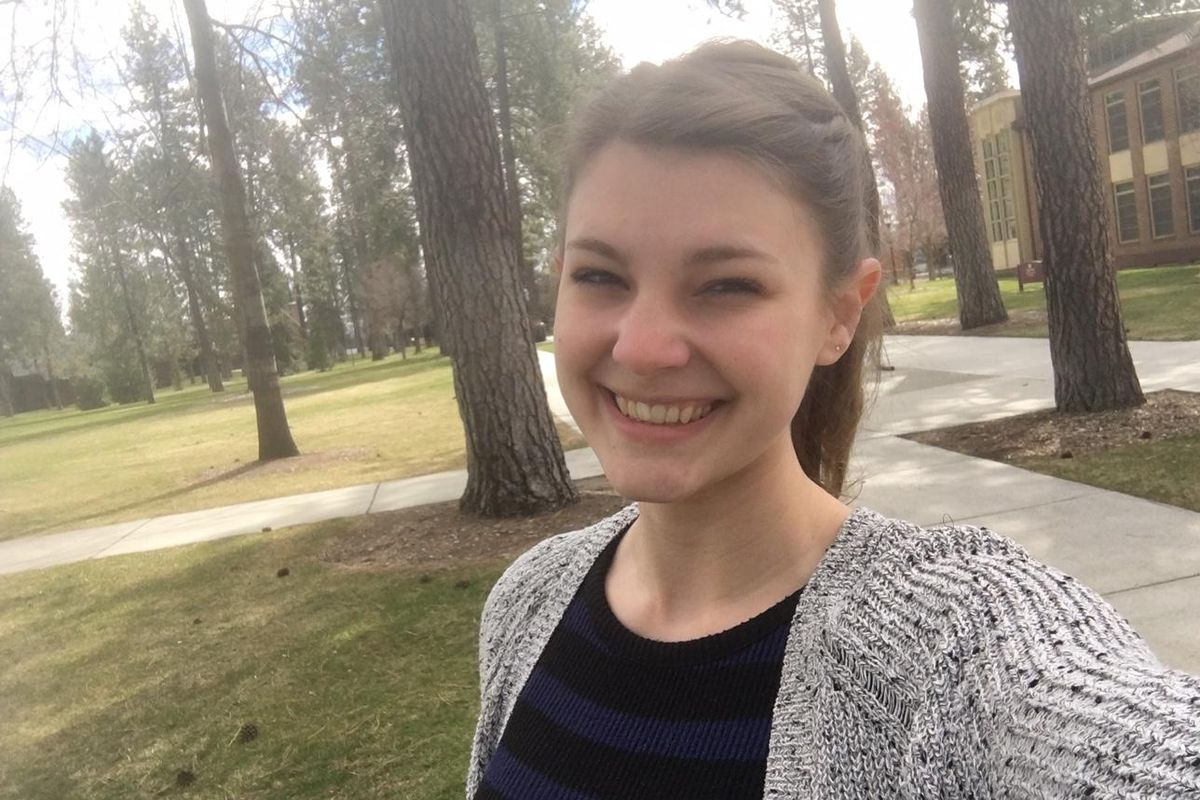Whitworth University offering services to remaining students who can’t leave

While most of the 3,100 students have returned to their homes as universities and colleges close their campuses in an effort to reduce the spread of COVID-19, Whitworth University has 74 students still remaining in campus housing, including 39 in dorms.
Most are international students who cannot depart the U.S. due to financial difficulties or travel restrictions and airline limitations, said Nicholas A. McKinney, International Education Center director.
“We are equipping our faculty and students as best as we can to combat these challenges, but this is surely a new paradigm that we will be engaged in for weeks and possibly months to come,” McKinney said.
Those left have access to a range of resources – academic, cultural, health and safety needs, takeout meals, immigration and logistical support, as well as laptops and webcams for online classes.

Iona L. Cairncross is living on campus. She is a resident assistant who moved from Boppell Hall to Warren Hall during the campus operations’ switch to online classes. The senior business major tries to maintain a sense of community through social media and technology with those who are gone and those remaining, as well as with family. In a British accent, Cairncross spoke of transferring to Whitworth from Lindale, Texas.
“I’m originally from the UK, but my family moved to Texas about six years ago now. So, I completed high school and community college in Texas and transferred to Whitworth a couple of years ago,” Cairncross said. “I always cause a lot of confusion in the accent department.”
She said the cafeteria has been set up for takeout and has been a point of connection for students, doing fun things, like asking students to bring in recipes from home so they can add them to the meal plan.
“They sometimes do little games, like Bingo, which is really fun. Every time you walk in, you have your Bingo sheet. I see a couple of people in the cafeteria that I can catch up with even with social spacing, so I don’t feel too lonely,” she said.
Irman Furume is an international student from the Congo living on campus. He lived in Virginia for two years and has family there. He is a resident assistant at McMillan Hall, studying political science.
“The professors are really on top of things, answering questions and giving feedback. We have custodians who are providing toilet paper, and the school is providing food, (but you must) go off campus to stores to buy snacks. It’s complicated to find transportation. You have to call, but everyone is gone,” Furume said.
He said the state of uncertainty has been difficult. “We are just waiting, not knowing what the future holds. I’m a senior this year and not sure if there’s going to be a commencement or anything of that sort.”
McKinney said the university is addressing the myriad of operational and student life-related details, many of which are new.
The university is supporting students who have lost on-campus jobs and subsequent income due to the essential operations mandate by state officials.
“These mandates and requirements outside of Whitworth’s control have certainly had direct impact on student employees, and we continue to face the very real difficulty of supporting the financial needs of these students,” he said.
Facing social distancing and remote education obstacles, Whitworth has set up a donor-based initiative called the Thrive Fund at whitworth.edu/thrive. Its purpose is to supplement funding support for emerging student needs. The initiative has raised more than $25,000.